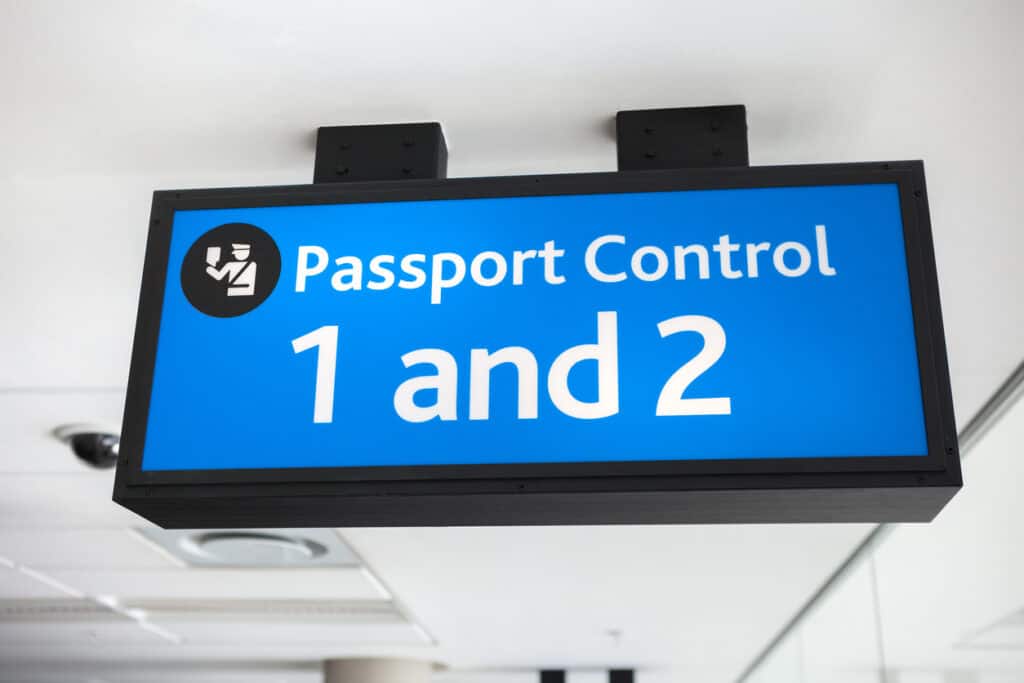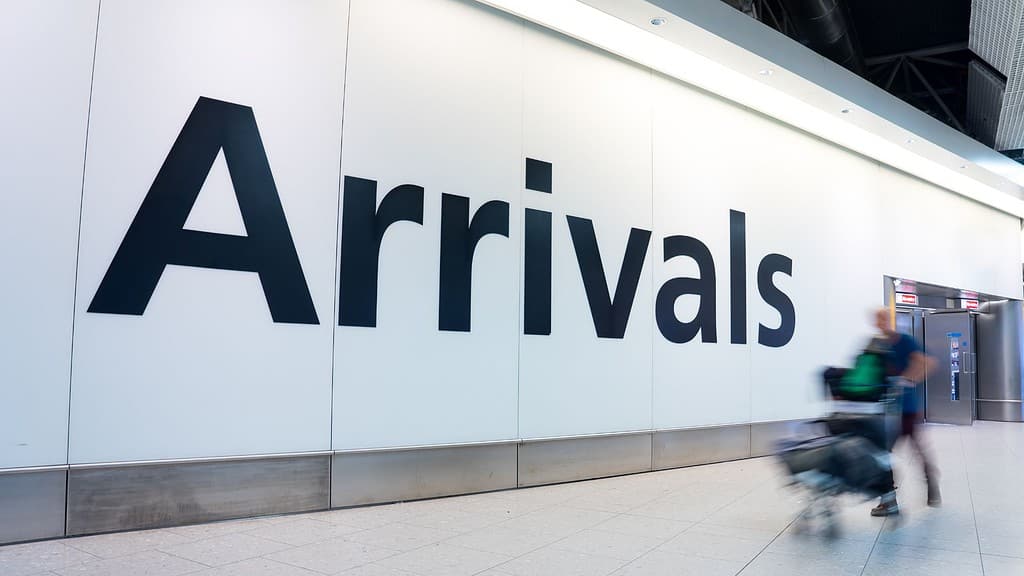Catch up on the discussion from the Parliamentary launch of CaSE’s report, Immigration: Keeping the UK at the heart of global science and engineering.
Maintaining the UK as a global hub for science and engineering
03 Feb 2016
Ahead of the election, it was clear that immigration would be a hot topic this Parliament, and one that certainly impacts on UK science and engineering. Therefore, following the election CaSE set about exploring the issues surrounding immigration in the context of science and engineering, from skills shortages to the attitudes of the public. We also examined how the Government’s immigration policies are affecting this sector, making recommendations for how they may be refined to support the Government’s aim of rebalancing the economy with a greater emphasis on science and innovation.
The result is our latest report, Immigration: Keeping the UK at the heart of global science and engineering, which was launched on 21st January in the House of Lords. The launch provided an opportunity to discuss some of the key issues and recommendations raised in the report, and also those made by the Migration Advisory Committee in their review of tier 2 which also was published that week.

The discussion event, Chaired by Lord Crisp, was entitled ‘How can immigration policy maintain the UK as global hub for science and engineering?’. It began with contributions from Prof Sir Venki Ramakrishnan, President of the Royal Society, followed by Andy Furlong, Director of Policy and Communication at the Institution of Chemical Engineers. I then spoke on the report and its findings, followed by Prof Alan Manning who sits on the Migration Advisory Committee.
Sir Venki has recently begun his 5 year term as President of the Royal Society and was quick to point out at the beginning of the discussion that three of the past five presidents of the Royal Society, including himself, have been immigrants. A helpful marker of the international nature of UK science.
In his comments he spoke of his own experience of moving to the UK, noting that he was willing to take a reduced salary to move to the UK from the US because of the kind of science he could do here. Quite the advertisement for British science, if not for British salaries – something the discussion turned to later on. But regarding bureaucracy of obtaining a visa, he noted that when he came to UK the process was much simpler – saying that if it had been as it is now he might have been put off. A comment from the audience put the speed of the UK visa processing time in context, saying that it compared well internationally and significant procedural improvements have been made in recent years. But there is always more that could be done to ensure the effort involved in application is proportionate, as some of the report’s recommendations seek to address – particularly concerning visitor visas and Tier 1.
Sir Venki may be new to the job, but he is well versed in immigration policy. Much to my relief he proceeded to talk through a number of the report’s proposals, making my job later on much more straightforward. He highlighted that:
- The U.K. benefits from overseas scientists whether they stay or leave after study so post study work options should be reconsidered
- International collaboration is increasingly important and encouraged therefore time abroad as part of your research work should not be counted against you in applying for indefinite leave to remain
- The MAC’s proposal for an immigration skills charge is recycling public money if applied to universities, there should be a better way
It was great to have Prof Alan Manning join the discussion and share both the recommendations the MAC has made to Government in its review of Tier 2, but also to explain the thinking and motivation behind the MAC proposals – focusing on potentially contentious recommendations such as minimum salary level increases and the immigration skills charge. These provided a lively area for discussion in the Q&A. On the whole, the salary thresholds seem reasonable, as they are set at the 25th percentile of the salary distribution both for new entrants to the workforce and experienced workers. However, it was raised that the minimums could perhaps prove to be barriers where pay is in line with national pay grades – perhaps for nurses or teachers in particular. For employers in science and engineering, now is the time to review how the proposed salary levels would affect your organisation and raise any foreseen issues with Government. There could be room for some exemptions, but Alan Manning was keen to point out that if there are skills shortages, then salaries should rise to reflect in-demand skills.
In his comments, Andy Furlong set out the place of immigration in UK science and engineering and posed the question of why any nation would want to erect barriers for recruiting talent into the UK. Looking at the number of individuals from the UK entering the engineering profession in particular, migration is a crucial part of meeting demand for skills. He also made the point that regardless of skills shortages, immigration benefits both migrant and home researchers by sharing skills & building networks. In his view, politicians must stop pandering to the prejudices stirred up by some press and parts of society.
In the Q&A session an MP disagreed and described the net inflow of people across the UK border as more than we can manage and putting a strain on local and national services, meaning it is necessary to reduce the inflow of migrants to the UK. In response I pointed to the graph on p68 of the report showing that despite wider public concern about immigration, there is public support for increasing immigration of scientists and researchers and for skilled workers more broadly. A more nuanced political narrative around immigration needs to become the norm.
What I didn’t say, but should have, is that the skilled migrants we’re discussing are precisely those that will be working in the NHS to meet higher demand for services, designing and building the transport systems, housing and infrastructure that will help meet the needs of our changing population, and teaching science and maths to our young people in schools and universities to grow the UK’s science and engineering skills base. Whatever your view on immigration as a whole, enacting policies to reduce the number of scientists and engineers who can enter and choose to stay in the UK is not in the interests of the UK.
Political leadership is needed to ensure the UK’s message to the world, as well as the government’s immigration policies, support migration of scientists and engineers for all our benefit. And we hope that the recommendations we’ve set out, if enacted, would be a step in the right direction.
The full list of 12 recommendations is on pg 8 of the report and I’d highly recommend taking a look through them. Some of the headline messages are outlined on CaSE comment. Over the coming months, CaSE will be working with others in the sector, and those within government with responsibility for immigration policy, to take these recommendations forward.
Thank you again to all those who attended the launch and contributed to the discussion, to the advisory group for their expert input, to all those who fed into the report, to Digital Science for sponsoring the report and launch, and to Lord Crisp and the APPG on Global Health for Chairing.
Related resources

A week on from the publication, Policy Manager Camilla d’Angelo takes a look at some of the questions that remain to be resolved and what to expect next for the Immigration White Paper.

Policy Manager Camilla d’Angelo takes a look at what the Immigration White Paper means for attracting international R&D talent to the UK.

In advance of the forthcoming Immigration White Paper, CaSE and 35 other organisations have written to select Westminster Parliamentarians.

This briefing summarises attitudes to immigration, international students and researchers, and their impact on UK R&D. It is based on evidence from a nationally representative survey of 4,100 UK adults in June 2024 and two focus groups in December 2024.